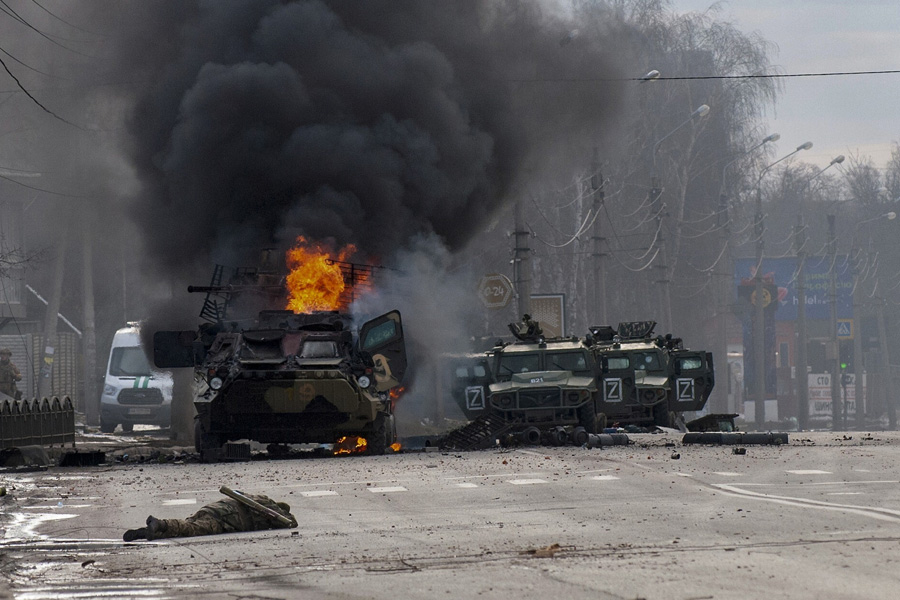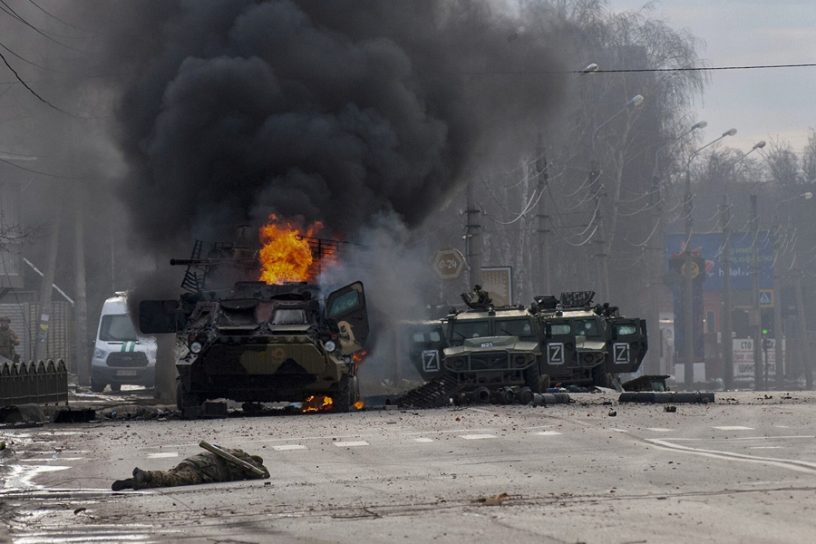
The war highlights the need for sustainable energy infrastructure, to safeguard the global economy from energy giants such as Russia, say the authors.
Authors
Abhiroop Chowdhury, Associate Professor, Jindal School of Environment & Sustainability, O.P. Jindal Global University, Sonipat, Haryana.
Armin Rosencranz, Professor and Dean, Jindal School of Environment & Sustainability, O.P. Jindal Global University, Sonipat, Haryana, India.
Summary
On 24 February, Russian President Vladimir Putin launched an all-out invasion of Ukraine. Since the end of World War II in 1945, this is the first time one nation has tried to redraw borders in Europe. Russian preparation for the invasion coincided with the wrapping up of the 2021 United Nations Climate Change Conference (COP 26) in November 2021.
And this time, COP26 came out with environmentally significant commitments. Nations affirmed the Paris agreement targets of limiting the rise of global temperature to not more than 2 degrees C from the pre-industrial period.
As many as 137 nations committed to taking steps to reverse forest land degradation by 2030, and 103 nations pledged to reduce methane emissions by 30 per cent of 2020 emission levels by 2030. One of the major hindrances in achieving these lofty environmental targets is the world’s dependence on hydrocarbons.
The war has been going on for more than three months. It has changed geopolitics and alliances across the globe. Environment and climate change policies are also impacted by it significantly.
The fifth session of the United Nations Environment Assembly (UNEA 5.2) got underway in the Kenyan capital, Nairobi, with discussions on global environmental concerns. One of the key points dis- cussed was the reason why the biodiversity and wildlife of Ukraine must bear the brunt of this war. Russia remained oblivious to these concerns. Amidst an ongoing war, environmental protection is not a major issue for Russia.
Russia is an energy giant with $167 billion worth of energy exports in 2020. Energy exports contribute to about 67 per cent of the Russian economy. In 2020, the carbon footprint of Russia amounted to 1.48 billion metric tons of CO2.
With sanctions restricting Russian gas supplies to the west, the EU needs to hastily look for alternative solutions.
Published in: The Statesman
To read the full article, please click here.


